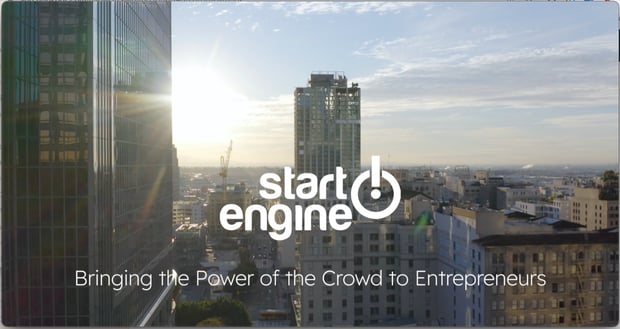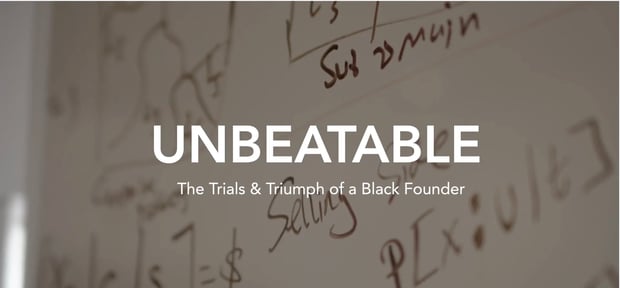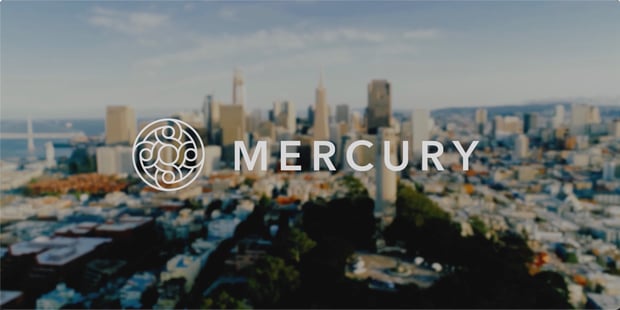
How Techstars’ Mentorship and "Give First" Mindset Build Startup Superstars

Table of Contents
Photos and film by Irina Logra photography.
Introduction
How does the founder of a marketing intelligence startup go from bootstrapping their business in Mauritius to closing $4.5 million in funding from Los Angeles investors in just a few months?
If you follow the example of Joseph Rutakangwa, Founder & CEO of Rwazi, you have to identify a business problem that needs solving—and then find the right mentors and partners to take your solution to the next level.
In the case of Joseph, and Eric Sewankambo, Co-founder and COO at Rwazi, they found that mentorship in Techstars.
Techstars accelerator programs
Techstars has more than 50 accelerator programs around the world, and close to 4,000 companies have gone through their programs. On average, founders raise $1M in their first round post-program.
Not surprisingly, competition for entry to Techstars’ programs is stiff. Only 600 early-stage companies are selected to join a Techstars program each year.
Successful applicants get access to a broad network of mentors, potential investors, prospective customers, and the broader Techstars community. Through the Techstars partnership program, they also get heavily discounted access to the services, platforms, and tools they will need to scale their businesses.

Access to mentors
Techstars program participants (referred to as “founders”) are introduced to a wide circle of potential mentors. Each founder then picks five to ten “lead mentors” that they will interface with closely during the course of the program.

Matt Kozlov, Managing Director of Techstars LA, describes the role of Techstars mentors:
“The level of support and coaching and business experience that our mentors provide to our founders is hard to quantify."
Matt Kozlov, Managing Director
"You have someone to talk to when you’re stuck or having doubts or struggling to get past something—someone who is deeply empathetic and deeply experienced to help you with any problem you’re facing.”
The theme of “giving” is central to all the Techstars programs. Mentors are driven by the desire to give back to their communities. “Our big philosophy is ‘give first,’” says Matt. “Everyone in the Techstars community gives without expecting anything in return. It’s a big karma environment.”
It’s a philosophy that sets Techstars apart. “I’m sure other programs have similarly strong communities,” says Matt. “But Techstars feels special.”
Access to investors
Techstars also gives startups valuable exposure to potential investors. Most Techstars programs are capped by a “demo day” where founders present their businesses to potential investors.

It’s an exciting and intense day, where founders can walk away from the 13-week program with the funding they need to grow and succeed.
Access to potential customers
Founders also get access to potential new customers through the program. They’re encouraged to book as many customer conversations as they can—and mentors do everything they can to make those calls happen.
“It’s not just a cold email to the customer,” says Matt. “I’m introducing them to my friend at Procter & Gamble or a friend’s friend, and explaining why they should take a meeting with the founders. I’m sending dozens of emails a week to facilitate conversations and then back-channeling to the founders to give feedback.”
Access to a community
Perhaps most importantly, founders become part of the larger Techstars community, starting with their own classmates. “They become part of a small cohort that goes through the program at the same time,” says Matt. “They also join the vertical stack of every company that has ever gone through the program, as well as the broader Techstars community.”
Since the Techstars community is so large, founders are often only one or two degrees removed from anyone they might want to meet.
Access to discounted services and tools
Techstars also partners with top providers of services and tools that founders will need to grow their businesses—and provides those services to them at heavily discounted rates.
The Techstars LA accelerator
Having chosen Techstars, Joseph and Eric had to decide which Techstars program to apply to. With the world emerging from COVID and many programs running remotely, they prioritized programs that would be held in person.
They also considered the backgrounds of the managing directors for each Techstar program. “We wanted a managing director with a background that was aligned with ours,” says Joseph. “Matt Kozlov, the Managing Director of Techstars Los Angeles, comes from Bain, which is the world of consulting—the same world we came from.”

Los Angeles is also an important hub for business development. While it’s best known as the heart of the U.S. entertainment industry, it’s also an important hub for healthcare, aerospace, and defense as well as a huge market for eCommerce and retail enablement. “LA is a really great place for a company to build,” says Matt. “And our mentors are the top entrepreneurs in the city.”


The Techstars LA accelerator program isn’t just for local companies. In fact, most successful applicants don’t even have roots in California. “A lot of companies that are a great fit for Techstars LA aren’t in LA,” says Matt. “They benefit from spending time in this incredibly diverse, robust, multi-industry, major metropolitan area that’s filled with incredible entrepreneurs and investors.”
For Joseph and Eric, Techstars LA was the perfect fit. And the warm climate didn’t hurt either. “I come from Tanzania, in East Africa and now I’m a resident of Mauritius. I’ve lived in Iowa; I’ve been to Pennsylvania. The LA weather definitely played a role in our decision,” he laughs.

From Tanzania to consulting around the world
Born and raised in Tanzania, East Africa, Joseph was exposed to the world of business and consulting when he enrolled in a postgraduate summer program at Lehigh University in Pennsylvania.
Joseph proceeded to consult for multinational companies around the world. Most of his work focused on market penetration strategies—figuring out which markets companies could roll out their products to, at what price, to what kind of consumer, and through which sales channels.
In the course of his work, Joseph identified a critical gap in consumer data intelligence in emerging markets—and the idea for Rwazi took shape.
Rwazi: A new marketing intelligence platform
In emerging markets, such as Africa, Latin America, and South Asia, retail sales often happen via informal trade and cash transactions. This “offline” behavior makes sourcing data on markets and consumer purchasing challenging in those regions.

Yet local and international brands need real-time data about market size, consumer behavior, and market penetration of their products to make decisions about expansion, investments, distribution, and new product/service offerings.
Rwazi fills that gap. It’s a marketing intelligence platform that provides multinational consumer goods companies with actionable data from developing markets. Rwazi combines technology and a network of thousands of qualified consumers (a.k.a. “mappers”) across Africa, Asia, and South America, to collect data from their locations on a daily basis.
 Joseph and Eric founded the company in 2021. At first, they struggled to build the processes and technology necessary to capture data continuously, at very high speed, with diminishing costs.
Joseph and Eric founded the company in 2021. At first, they struggled to build the processes and technology necessary to capture data continuously, at very high speed, with diminishing costs.
They also needed time to find the right approach. Initially, they tried to source data from agents and sales teams but eventually moved to sourcing self-reported data directly from qualified consumers.
These “mappers” are compensated for logging their purchases in the Rwazi web or mobile app. Rwazi customers can then use the data for strategic decision-making, such as where to open new retail locations, and how to deliver local packaging and pricing.
With no connections to potential investors, Joseph and Eric put their own savings into the venture to get it off the ground. “We didn’t have any pre-seed capital,” says Joseph. “We just had our own savings, and we put everything in the company to get started.”

Growth through customer acquisition
Rwazi was an immediate success. The company was profitable and growing just a few months after launch,
Joseph and Eric could have easily continued along the same growth trajectory, but they had bigger plans. “One of the threats we faced was evolving into an SMB, with a growth rate of 20 or 50%,” says Joseph. “We wanted the 100, 200, or 300% growth rate of a startup.”
The team knew that one way to make this leap was to acquire more and more customers at a diminishing acquisition cost—and then invest that margin back into the business.
With 60% of their customers coming from the U.S., and with partnerships as their most effective customer acquisition channel, they decided to look for an accelerator program that would help them expand their network and find new customers. “Getting the backing of large, established brands with networks that we can utilize to grow and reach our ideal customers was our best way forward,” says Joseph.
Joseph and Eric looked at the top accelerator programs around the world, quickly eliminating those that were B2C or deep tech-focused. They also searched for accelerators with large brands in their communities—brands that could eventually become customers.
“Based on our criteria, Techstars was the easy choice for us,” says Joseph.

Tenacity and coachability
Rwazi is just the kind of company—and Joseph and Eric the kind of founders—that Techstars is designed to help.
Matt has been a Managing Director at Techstars for almost eight years, shepherding hundreds of graduates through its program. He’s very familiar with the innumerable challenges that founders face. “We need to make sure that the founders we back have the passion, commitment, grit, and resiliency to succeed,” says Matt.
That’s why Technstars prioritizes the founders behind the company when they evaluate program applications. “What we look for more than anything else is an extraordinary team,” says Matt.
“We’re looking for an unrelenting commitment and passion for the problem they’re solving. Why was the founder put on this planet to solve this problem?”
Matt Kozlov, Managing Director
While the founders need to be tenacious, they also need to be coachable. “A lot of founders aren’t good at asking for help,” says Matt. “They won’t get vulnerable and say, ‘Hey, here’s a challenge I’m struggling with. Can you help me solve it?’”
When Matt met with Joseph, he immediately understood the need for offline consumer data in emerging markets and bought into the idea of Rwazi. But what really persuaded him was the tenacity and determination that Joseph had already demonstrated.
“Joseph basically built out an army of 10,000 freelance data collectors across Africa with no resources and bootstrapped his way to about $30K of monthly revenue from small clients,” says Matt.
Consequently, Matt didn’t hesitate to offer Joseph a spot when they met. “I made Joseph an offer to join Techstars within 30 minutes,” says Matt. “Usually, I spend hours with a founder.”

A rigorous, three-month program
Matt was excited to see what the Rwazi team could do with the right support. “They needed technology. They needed capital. They needed Fortune 500 customers. And those are the areas we’re really good at,” says Matt.
Rwazi joined the March 2022 Techstars LA cohort. Along with 11 other CEOs, Joseph embarked on a rigorous three-month program of education, advising, and development.
Joseph learned a lot from his mentors and forged lifelong connections. “You build strong relationships with your mentors,” says Joseph. “They help you access different things and grow in different ways, whether it’s personal development or business development.”

Joseph also formed strong friendships with his fellow participants. “My class, we’re like best friends now,” says Joseph. “We’ve built this close connection because every class is very small: twelve startups rather than hundreds. You build very strong connections that help you optimize.”

Scaling sales, marketing, and service with HubSpot
Joseph also took advantage of Techstars partnerships to get big discounts on the tools he needed to scale his business, including HubSpot. When he started with Techstars LA, he used Excel to manage sales. His mentors quickly encouraged him to move to a more sustainable and scalable platform.
“HubSpot had the best offer, and we could scale it as our team grew to manage sales, customer success, and marketing,” says Joseph. “We could start using it right away with the discount, even though we hadn’t raised yet and were very conscious of how much we were spending.”
Immediate inbound interest
Rwazi started to get inbound inquiries from prospective customers as soon as the Techstars LA cohort class was announced. “It was proof to us that we had made the right choice,” says Joseph.
Interest continued to grow as the program continued. In fact, their monthly revenue grew by 4x or 5x during the course of the program.
By demo day—where participants formally present their opportunities to investors —interest was higher than ever.
Rwazi walked away with $4.5 million in bids.
Techstars LA demo day in 2022, with Joseph making the Rwazi pitch
Closing the first round of funding
Rwazi eventually closed on $4 million from a different investor. Demand was so high, they could pick and choose whom they wanted to partner with. Joseph explains: “We didn’t take any of the investment bids from demo day, because the table had flipped. We could assess the investors and pick the ones we wanted to work with.”
The Rwazi team chose to raise their first round from LA-based fund Bonfire Ventures. The deal came together very quickly. “It was one of the fastest rounds I’ve ever seen close,” says Matt. “It happened in two weeks.”
A global presence: 60+ countries, cities, and towns
Today, Rwazi is in over 60 countries, cities, and towns and has over 50,000 mappers collecting data, covering 1.5 million outlets.
For Joseph and Eric, Techstars was just the beginning. “After Techstars, life just gets more intense,” says Joseph. “Your startup is going to grow at a faster speed. You’re going to hire more people. It just gets more intense and you have to absorb the pressure.”
The Rwazi team is busy rolling out new products that support different languages, which will open up more markets and broaden the demographics of the consumers from whom they can source data.

Meanwhile, the company continues to use HubSpot as they grow. “Now, we have seven salespeople. We have RevOps. We have marketing. And we’re using HubSpot functionality to manage and measure everything, including outcomes,” says Joseph.
Know what you want—and go get it
Joseph doesn’t hesitate to recommend the Techstars accelerator program to other founders. “Techstars is the best choice because you get access to a very large, expansive corporate network, more than 3,000 large companies, a bunch of Fortune 500 and so forth across the world,” says Joseph. “Techstars isn’t just in the Silicon Valley. Techstars is everywhere.”
And if a founder is accepted into Techstars, Joseph encourages them to lean into the experience.
“Know exactly what you want. Be intentional about everything. And absorb the pressure rather than reject it. It will morph you into a new person.”


